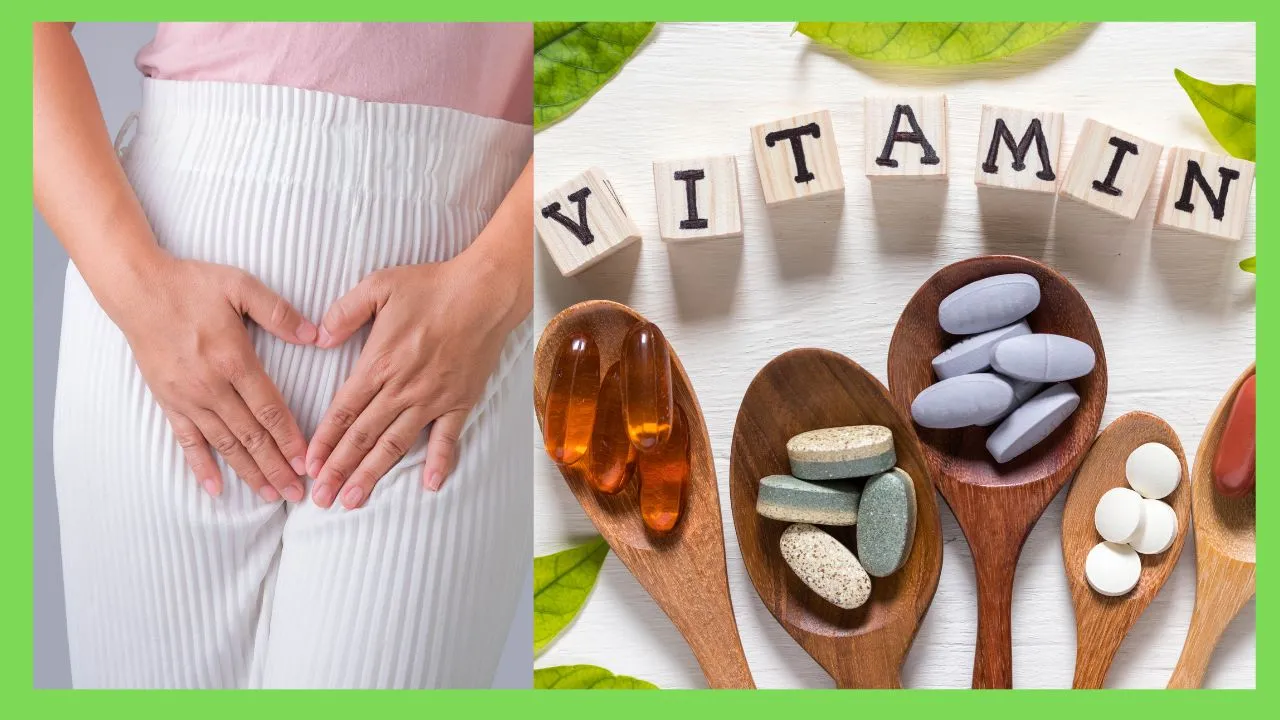Vaginal health is a crucial yet often overlooked component of overall well-being. This aspect of health not only impacts physical comfort but also plays a significant role in overall quality of life. Maintaining optimal vaginal health involves various strategies, among which proper nutrition—particularly through essential vitamins—holds paramount importance. This article delves into the top vitamins that can enhance vaginal health and offers practical advice on incorporating them into your diet.
Table of Contents
Understanding Vaginal Health
Common Issues Affecting Vaginal Health
Several issues can compromise vaginal health. Common problems include infections such as bacterial vaginosis and yeast infections, dryness, and hormonal imbalances. External factors like poor diet, excessive stress, and lack of proper hydration also play a role. Addressing these issues requires a multifaceted approach, where vitamins can provide substantial benefits.
The Role of Vitamins in Vaginal Health
How Vitamins Support Vaginal Function
Vitamins are vital for maintaining the health of the vaginal tissues and ensuring the proper functioning of bodily systems that impact vaginal well-being. They help regulate cellular function, support immune responses, and maintain hormonal equilibrium. Proper vitamin intake can enhance tissue repair, reduce inflammation, and bolster overall vaginal health.
The Connection Between Vitamins and Immune System
The immune system plays a crucial role in vaginal health, as a robust immune response helps fend off infections and maintain a healthy microbiome. Vitamins contribute to immune system function by supporting the production of immune cells and enhancing the body’s ability to combat pathogens. Vitamins such as C, D, and E are particularly noteworthy for their immune-boosting properties.
Top Vitamins for Boosting Vaginal Health
Vitamin C: Strengthening the Vaginal Walls and Immune Defense
Vitamin C, an antioxidant par excellence, is instrumental in strengthening the vaginal walls by promoting collagen production. Collagen is essential for maintaining the structural integrity and elasticity of vaginal tissues. Additionally, vitamin C enhances the immune system, aiding in the prevention of infections and supporting overall vaginal health.
Vitamin E: Promoting Moisture and Elasticity
Vitamin E is renowned for its skin-nourishing properties. It aids in maintaining vaginal moisture and elasticity, thus preventing dryness and discomfort. Its antioxidant properties help mitigate oxidative stress, which can damage cells and tissues. Regular intake of vitamin E supports a supple and resilient vaginal environment.
Vitamin D: Enhancing Immune Response and Reducing Inflammation
Vitamin D is crucial for modulating the immune system and reducing inflammation. Adequate levels of vitamin D can enhance the body’s ability to fight infections and maintain a balanced inflammatory response. This vitamin is particularly important for women who experience recurrent infections or inflammatory conditions.
Vitamin B Complex: Supporting Hormonal Balance and Energy Levels
The B complex vitamins—encompassing B1, B2, B6, B12, and folate—play a pivotal role in hormonal regulation and energy production. These vitamins help balance hormone levels, which is essential for maintaining vaginal health. They also contribute to overall vitality, supporting both physical and emotional well-being.
Vitamin A: Maintaining Healthy Cells and Tissue Repair
Vitamin A is essential for cell growth and repair. It supports the maintenance of healthy epithelial tissues in the vaginal area, ensuring proper cellular turnover and repair. This vitamin also plays a role in immune function, further contributing to overall vaginal health.
How to Incorporate These Vitamins into Your Diet
Best Food Sources for Each Vitamin
Incorporating the right foods into your diet is the most natural way to obtain essential vitamins. Vitamin C is abundant in citrus fruits, strawberries, and bell peppers. Vitamin E can be found in nuts, seeds, and green leafy vegetables. Vitamin D is present in fatty fish, fortified dairy products, and exposure to sunlight. B vitamins are plentiful in whole grains, legumes, and animal products, while vitamin A is found in liver, sweet potatoes, and carrots.
Recommended Daily Intake and Supplement Options
Adhering to recommended daily intakes ensures optimal benefits. For vitamin C, the recommended daily amount is around 75 mg for women. Vitamin E intake should be about 15 mg daily. Vitamin D recommendations vary but generally suggest 600-800 IU per day. The B complex vitamins each have specific recommended amounts, often met through a balanced diet. In cases where dietary intake is insufficient, supplements can provide a viable alternative.
Tips for Maximizing Vitamin Absorption
To maximize vitamin absorption, consider consuming vitamins with meals that contain healthy fats, which can enhance the absorption of fat-soluble vitamins like A, D, and E. Additionally, combining vitamin-rich foods with a diverse range of nutrients can improve overall absorption and effectiveness.
Lifestyle Tips for Complementary Vaginal Health
Hydration and Its Impact on Vaginal Health
Adequate hydration is crucial for maintaining vaginal moisture and overall health. Drinking sufficient water helps support bodily functions, including the maintenance of mucosal tissues. Proper hydration also aids in flushing out toxins and supporting the health of the vaginal microbiome.
The Role of Exercise in Hormonal Balance
Regular physical activity contributes to hormonal balance, which is vital for vaginal health. Exercise helps regulate hormones, improve circulation, and support immune function. Engaging in consistent, moderate exercise can enhance overall well-being and support vaginal health.
Stress Management and Its Effect on Vaginal Well-being
Stress can have a significant impact on hormonal balance and vaginal health. Chronic stress may lead to hormonal imbalances and exacerbate vaginal health issues. Employing stress management techniques such as mindfulness, yoga, or counseling can improve emotional and physical health.
Potential Risks and Considerations
Possible Side Effects of Excessive Vitamin Intake
While vitamins are essential, excessive intake can lead to adverse effects. Overconsumption of fat-soluble vitamins, such as A, D, E, and K, can result in toxicity. It’s important to adhere to recommended dosages and consult with a healthcare provider before starting high-dose supplements.
Interactions Between Vitamins and Medications
Vitamins can interact with medications, potentially affecting their efficacy or leading to unintended side effects. For instance, vitamin K can interfere with blood-thinning medications. Always discuss with a healthcare professional about potential interactions between vitamins and any current medications.
Consulting with Healthcare Professionals
When to Seek Professional Advice
Consulting a healthcare professional is advisable if you experience persistent vaginal health issues or are considering significant changes to your vitamin intake. A healthcare provider can offer personalized recommendations and ensure that your approach to improving vaginal health is safe and effective.
Conclusion
Maintaining vaginal health is essential for overall well-being and quality of life. By incorporating key vitamins—C, E, D, B complex, and A—into your diet, you can support and enhance vaginal health effectively. Making informed dietary choices, staying hydrated, managing stress, and consulting with healthcare professionals will further contribute to a healthy and balanced life.

